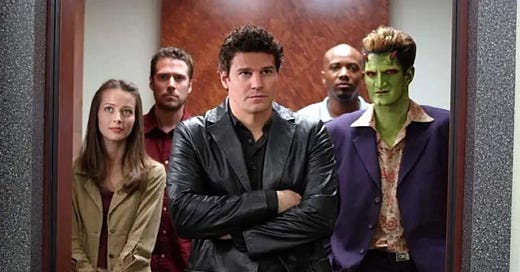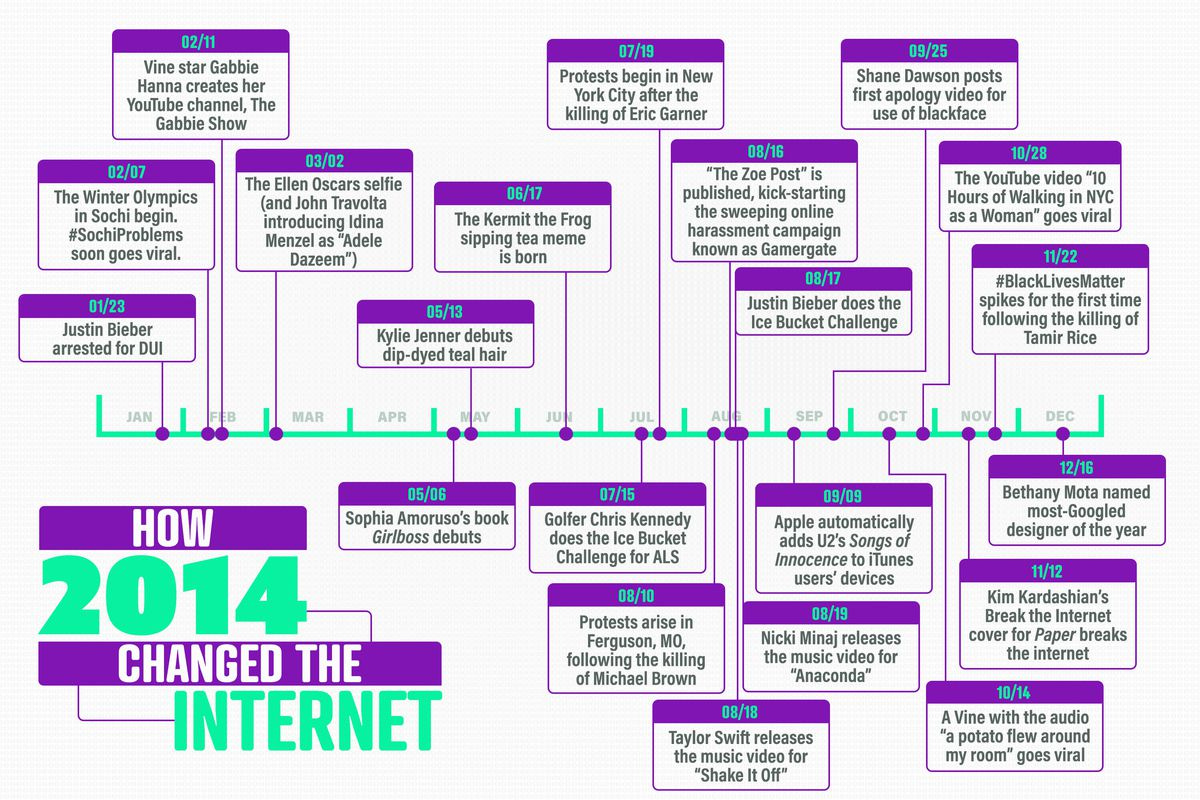The Bluestocking, vol 317: Muriel Spark's Slate pitch
She was serving sixth and final mass extinction event realness
Happy Friday!
My favourite thing I did this week was play “millennial CAPTCHA,” which nearly made me cry with nostalgia as I had to type on a Nokia 3310. I am that Peter Kay sketch about how “yer mam loves Prodigy” brought to life. PUT ON BASEMENT JAXX1.
Helen
Angel Was So Much More Than The “Adult Version” of Buffy the Vampire Slayer (Den of Geek)
The Angel character with the most pronounced evolution was arguably Wesley Wyndam-Price (Alexis Denisof). Introduced in Buffy as an ineffectual, pratfalling windbag, mostly there to annoy the Slayer, he would ride into Angel season one claiming to be a ‘rogue demon hunter’, though that façade would quickly slip. Over the seasons, Wesley would wrestle with his crippling lack of self-esteem, strongly hinted to be the legacy of childhood abuse, and become much more sympathetic and capable, though that self-actualization was not always positive (men will literally kidnap their friend’s infant son, cut themselves off from everyone they know, start sleeping with the enemy, keep collapsible swords and guns up their sleeves and imprison women in closets with only a bucket for company, rather than go to therapy). By the end of the show, Wesley was functionally unrecognizable, a character arc that nobody could have predicted based on his first appearance.
So it turns out Angel is 25 years old! I know that most people see it as wildly inferior to Buffy, but I really loved it (granted, it tailed off towards the end of the run). It became a narrative about whether someone who has done terrible things can ever really forgive themselves, which is a pretty heavy question for a “teen” show. The early episode “Are You Now Or Have You Ever Been”, about a demon that feeds on paranoia (set during 1950s communist paranoia) is particularly brilliant on that front.
Angel also gave me one of my mottos, thanks to the demon bar host Lorne—stay with me—about how things can’t stay the same, and you wouldn’t want them to, anyway.
Lorne: Now, I can hold a note for a long time. Actually, I can hold a note forever. But eventually, that's just noise. It’s the change we’re listening for. The note coming after and the one after that. That’s what makes it music.
I love that as a life lesson: it’s the change that makes it music.
All Internet Roads Lead Back to 2014 (The Ringer)
Looking back now, when our feeds are a perpetual washing machine of sponcon, paid partnerships, and videos hashtagged #ad, the digital world of 2014 feels like a relic. Over the past decade, social media has waffled into a multitentacled corporate entity, becoming not just a factor but often a key player in our politics, interpersonal connections, and self-perceptions. Yet much of this was incubated in 2014, the year of Gamergate, the Ice Bucket Challenge, and that one inescapable Oscars selfie. It was the first year that showed us the power viral moments have to fuel awareness, hate-fueled harassment, and star power alike. And for some random people on the internet, it was the moment they began to realize that they weren’t just one-off viral hits—they were on the precipice of something greater.
This recommendation comes via Caitlin Dewey, who notes that it’s wild to think “that Gamergate, #BlackLivesMatter and the Ice Bucket Challenge all kicked off within the same one-month span.” I concur with Caitlin that this piece doesn’t quite deliver—it relies too heavily on interviews with 2014-era influencers, who don’t have a lot to say—but like her, I think the premise is intriguing.
The year 2014 was definitely when my internet experience got worse, which I’ve always attributed to the combination of me getting a job with a small amount of power in a leftwing magazine, and me taking the poor decision to litigate my editorial choices with random critics on Twitter2. But maybe it was bad for reasons that weren’t to do with my personal failings, too!3
Quick Links
Why can’t LLMs do Wordle? Interesting, long, nerdy post on the current and future limits of large language models (Strange Canon, Substack). Thanks to Henry Oliver for the tip.
“Just after 2 p.m., Coles snatched a microphone and breezed through her considerable résumé before announcing two new jobs that would show what sort of stories she wanted to prioritize. Effective immediately, she would hire a Chief Lauren Sanchez Correspondent and a Chief Fruits and Vegetables Correspondent, based in Montecito, California, to cover Meghan Markle’s American Riviera Orchard, which she was “completely obsessed” with. (The Beast would later publish six stories on Markle’s jam in as many days.)” Thoroughly enjoyed this gossipy romp through the arrival of a new exec at the Daily Beast, who tries to assign the staff stories like “did Donald Trump fart in court,” prompting an employee revolt (NYMag).
“Muriel Spark lived long enough to write a series of online diaries for Slate.” What.
That line comes from a review of Honor Levy’s collection of short stories, which aim to capture the argot of the internet. If you understand all these phrases, touch grass immediately: “He was giving knight errant, organ-meat eater, Byronic hero, Haplogroup Rlb. She was giving damsel in distress, pill-popper pixie dream girl, Haplogroup K. He was in his fall of Rome era. She was serving sixth and final mass extinction event realness.”
“Who Sees Gaza?” Nplusone on the media’s reluctance to publish violent images from Gaza, driven perhaps by sensitivity over sharing pictures of people without their family’s permission; being seen as racist and exploiting foreign suffeing; or offending their readers; or reasoning that those images are on social media, anyway. Eight years ago, I wrote about this trend for Nieman Reports, and the question still hasn’t gone away: what’s the line between blasting out traumaporn on the one hand, and sanitizing the reality of war on the other?
“I had been avoiding my friend Jens Söring for months. Whenever his emails arrived, I’d open a reply window and stare with dread at the blinking cursor. I no longer knew what to say to him, this man who had spent 33 years in prison for a double homicide he swore he didn’t commit.” At the moment, I’m thinking a lot about how humans deal with being wrong (spoiler: not well). Here’s Amanda Knox, who was falsely convicted of murder, on her gradual realization that someone whose innocence she championed… might well have been guilty after all (The Atlantic).
See you next time!
Immediately after typing this, I did in fact put on Basement Jaxx. “Red Alert,” to be specific.
I’ve written about this in Difficult Women, so let’s not go through it again here. Besides, I am heeding Gia’s advice about life online: I don’t want to be angry.





Basement Jaxx makes me thank that, despite all of her wonders, Sally Rooney hasn’t yet written the great “90s school disco” novel.
The millennial CAPTCHA was fun! Though as a typically invisible, early adopting/internet working GenX, I looked at most of it as stuff we/our friends made. Which in turn has made me wonder how long GenX can keep ducking the great pointy finger of blame for all the dystopian tech seeds we sowed during the late 90s/early 2000s for all millennials to learn to be digital natives on.